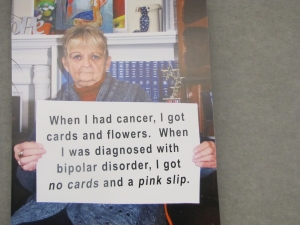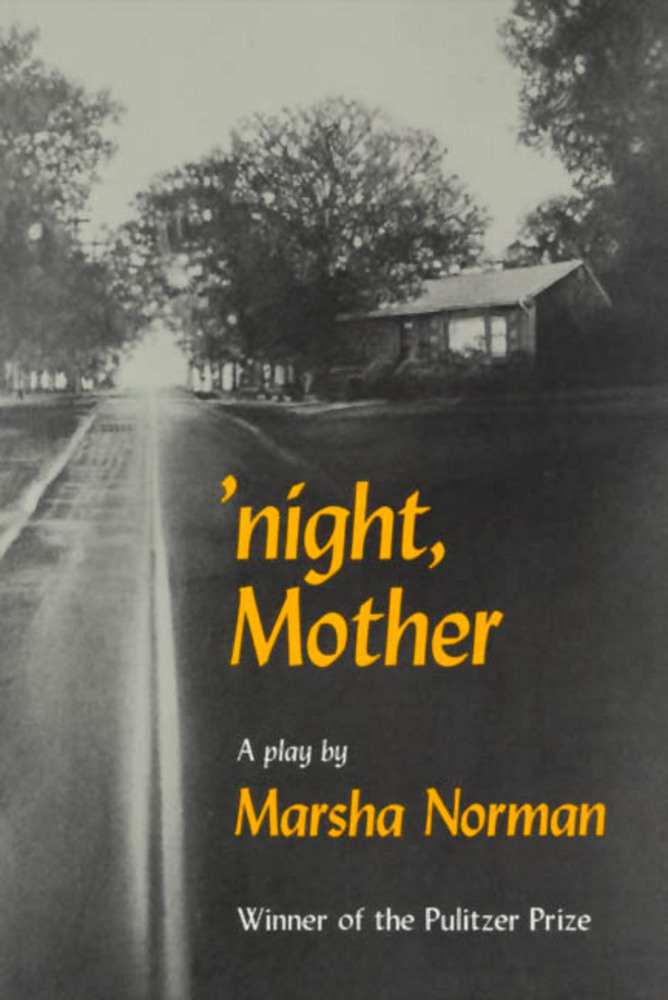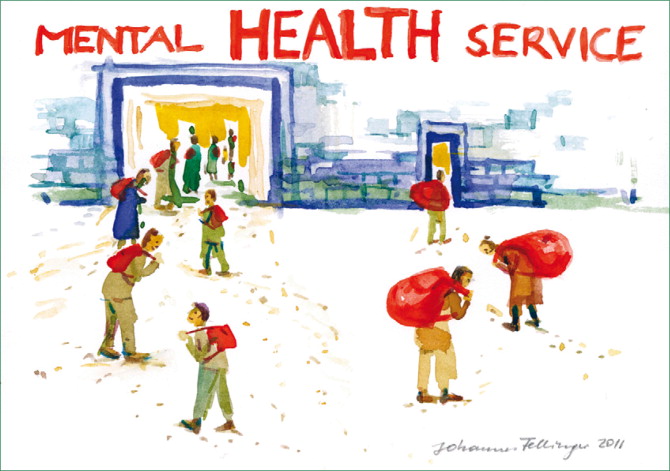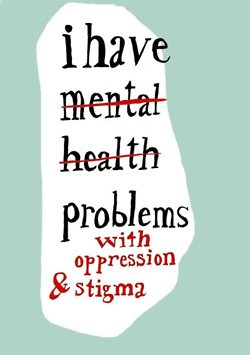‘night, Mother, written by Marsha Norman, tells the story of two women, Thelma the mother and Jessie the daughter on one of their mundane nights which like every other night of their lives, was dictated by daily routine. However, on this night, Jessie made a decision to do something about it.
By the time I have grown to know the script by heart, it is apparent that Thelma and Jessie’s experience in relation to the mental health care closely resembles the experience of many deaf people between 1970 to 1990. According to one theory, Jessie meets nearly all symptoms for clinical depression in the Diagnostic and Statistical Manual of Mental Disorders, 5th Edition (DSM-5), but it is just one of the few theories behind her mental state; she has other misfortunes in her life, too.
Imagine yourself inside that living room, and instead of Thelma and Jessie, you are with someone who you know and more or less love. Imagine that this person is suffering a lack of treatment for their mental issues because they are deaf and the flaws in the system have squashed their rights to full and equal accessibility to mental health providers. Taking a look at our deaf history with the mental health care system, we have endured a long history of systemic oppressions and prejudices. It is still happening everywhere. I have seen it myself, and what I have seen is just the tip of a huge iceberg of miscommunication, mistreatment, and mismanagement that have caused the deaf and hard-of-hearing population to receive inadequate mental health care.
I experienced some typical PTSD symptoms after my marriage collapsed for a while and I somehow coped with them. I felt depressed, but I didn’t have most of the symptoms that suggested depressive disorder. I was never at the point where I couldn’t drag myself out of the bed or viewed the world as a dull and lifeless place for more than two consecutive weeks. I knew I should have seen a therapist though. I can imagine how helpful it would’ve been for me. I tried to look for one online but the information I found was minimal. If I found one that was accessible in ASL, they typically did not accept my health insurance. In addition to my introversion and the stigma of domestic violence, I lost my motivation to seek for help and eventually figured it out on my own. That was only five years ago.
However, not treating your mental issues such as anxiety disorders, ADHD, bipolar disorder, eating disorder, post-traumatic stress disorder, autism, obsessive compulsive disorder, depression, suicidal, schizophrenia, borderline personality disorder, social phobia, alcoholism, substance abuse, other addictions, and more can lead to much more severe consequences. It is already evident that the majority of deaf homeless people who live on the streets ended up living there because they have not met a single person who knows how to not only communicate fluently in American Sign Language, but also how to adjust the range of their receptive and sign language skills from disfluency to fluency of their clients’ signing ability. Professionals like these are few and far between. As a result, deaf people endured their mental illnesses or simply left them untreated. Like Jessie, deaf people with a disadvantaged status, likely uneducated, and living in some form of isolation, either physical or communication-wise, are at high risk of never receiving much needed help.*

There are many other deaf people who have mental illnesses but they also have jobs and homes and families. They are educated and serve as participating members of society yet they still hide behind the thinly veiled windows of their homes, trapped in their own minds. This play is not only just a reminder of this sad truth, but it is also a reminder of why we should discuss about mental health openly with our families and friends. The more we talk about it, the mental health care system in America will hear us. If we do not do something about it, it will remain broken.
Thanks to the growing numbers of available resources on Internet today, we can look in the comfort of privacy and find out what we need and where we can get help. We can access to the directories such as:
Gallaudet University Mental Health Directory
However, it is still not enough, we don’t know if all of the professionals on these directories are really fluent in ASL and culturally inclusive. I just became aware of this new online mental health network consisting of ASL fluent and culturally inclusive professionals that serve deaf and hard-of-hearing community. The concept is wonderful. Please share and spread the word about this!
If you want to know more about ImaginASL’s production, ‘night, Mother, go here.
Want to know what happens to Thelma and Jessie? Last chance to buy your tickets here! The dates are March 11 and 12 at The Bug Theatre, Denver, CO
*Unique Considerations for the Deaf Needing Mental Health Care



Awesome article! Thanks for writing it. I am always glad to see something new from you!
Jennifer Ceyanes
>
Thanks for reading! Your comment is really appreciated. 🙂